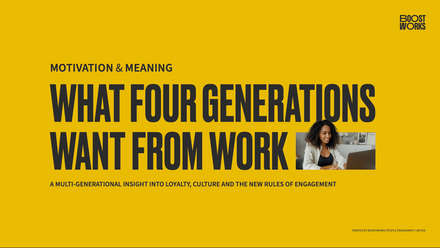Expert view: Shannon Rivers of BITC on the need for good work
Supporting employee wellbeing isn’t just a tick-box exercise; it should be a boardroom priority.
It’s time for employers to change the way they think about employee wellbeing – both mental and physical – so that everyone has the opportunities they need to succeed at work.
It’s vital that ways of working are personalised to employees’ individual needs, so that their work works for them.
Offer flexible working
There’s no ‘one-size-fits-all’ approach when it comes to ways of working.
A nuanced, personalised approach must be taken when assessing which flexible working options should be offered, and the right to request flexibility should be available from day one, as prompted in the Employment Rights Bill.
Employers need to change their mindset when thinking about flexible working. It’s no longer just about later start times or reduced hours; people need flexibility in when, where, and how they work.
The shocking reality is that many managers feel like they need to prioritise the interests of their organisation over their team’s wellbeing, piling on unrealistic deadlines and increasing workload, which can negatively affect employee mental health, causing stress and burnout.
Evidence shows that investing in employee wellbeing isn’t just good for the individual; it’s also good for business.
Prioritising employee health over organisational needs can help reduce absenteeism, reduce presenteeism, and increase productivity, with a financial return of up to £370 billion, according to our research report Revolutionise Your Workplace: Your Job Can Be Good For You (2024).
When employers offer employees the option to work when, where and how it suits them, and enable employees to switch off outside their agreed working hours, they will see an improvement in employee wellbeing.
Think inclusively
The people who would benefit most from personalised flexibility are often those who are least likely to be able to access it. This includes employees in lower-income roles, black, Asian, mixed race and other ethnically diverse employees, employees with disabilities, and women.
In a workplace culture where people come first, employers will be able to attract and retain more diverse talent that is best suited to the needs of the organisation.
When people feel more confident and comfortable talking about work-related stress, they will be able to seek out the right support.
Employers need to listen to and consider the needs and opinions of their employees, especially those from diverse groups, to understand where work needs to be done and make changes that will benefit everyone.
This can boost employee morale, job satisfaction and employee engagement.







